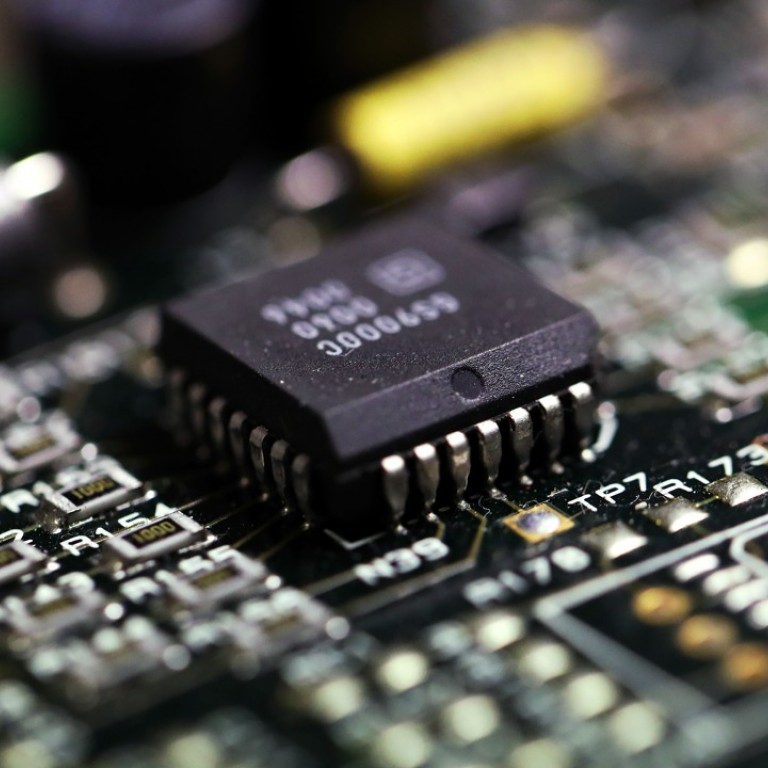
Amazon and Supermicro back Tim Cook and call for Bloomberg to withdraw China chip hack story
- Super Micro Computer CEO calls on Bloomberg to retract story as it contains ‘unsupported allegations’
- Amazon Web Services CEO tweeted that reporters “got played or took liberties”, calling on Bloomberg to retract
Pressure is rising on Bloomberg over an investigative news report that claimed Chinese spies used microchips to infiltrate several major US technology companies, after executives at two other tech firms named in the report backed Apple chief executive Tim Cook in calling for a retraction.
Super Micro Computer (Supermicro) chief executive Charles Liang issued a statement on Monday saying Bloomberg should retract the story as it contains “unsupported allegations” following on from Andy Jassy, chief executive of Amazon Web Services, who earlier tweeted that “reporters got played or took liberties, Bloomberg should retract".
A Bloomberg Businessweek report on October 4 cited 17 unidentified sources from intelligence agencies and businesses claiming that Chinese spies had placed computer chips inside equipment used by about 30 companies, including Apple and Amazon.com, and multiple US government agencies, which would give Beijing secret access to internal networks. San Jose, California-based Supermicro’s motherboards were at the centre of the malware chip allegations.
The Bloomberg report was published at a sensitive time in US-China relations amid an escalating trade war, a push by the US to end forced technology transfers in exchange for market access and rising opposition to Beijing’s Made in China 2025 plan – which the Trump administration has seized on as an example of what it sees as unfair state intervention in China's economy.
Hardware maker Supermicro had said on Monday it would review its motherboards for any proof of malware chips, but this report was quickly superseded by Liang’s statement. “Bloomberg should act responsibly and retract its unsupported allegations that malicious hardware components were implanted on our motherboards during the manufacturing process,” Liang said in the statement. “Bloomberg has not produced a single affected motherboard.”
Jassy’s denial of Bloomberg’s claims in a tweet was also forthright. “They [Bloomberg] offered no proof, story kept changing, and showed no interest in our answers unless we could validate their theories.”
Belina Tan, a spokeswoman for Bloomberg in Singapore, did not immediately return a phone call seeking comment. Bloomberg has said it stands by its report and is confident of its reporting, which was conducted for more than a year.
Supermicro has said that the design complexity makes it practically impossible to insert a functional, unauthorised component onto a motherboard without it being caught by the checks in its manufacturing and assembly process. Meanwhile, security experts – including UK and US authorities such as the Department of Homeland Security – have said they had no knowledge of the attacks.
The Bloomberg report also said that Apple in 2015 had found malicious chips on Supermicro motherboards and added that Amazon uncovered such chips the same year while examining servers made by Elemental Technologies, which Amazon eventually acquired. However, Apple, Amazon and Supermico have denied the allegations from the outset.

